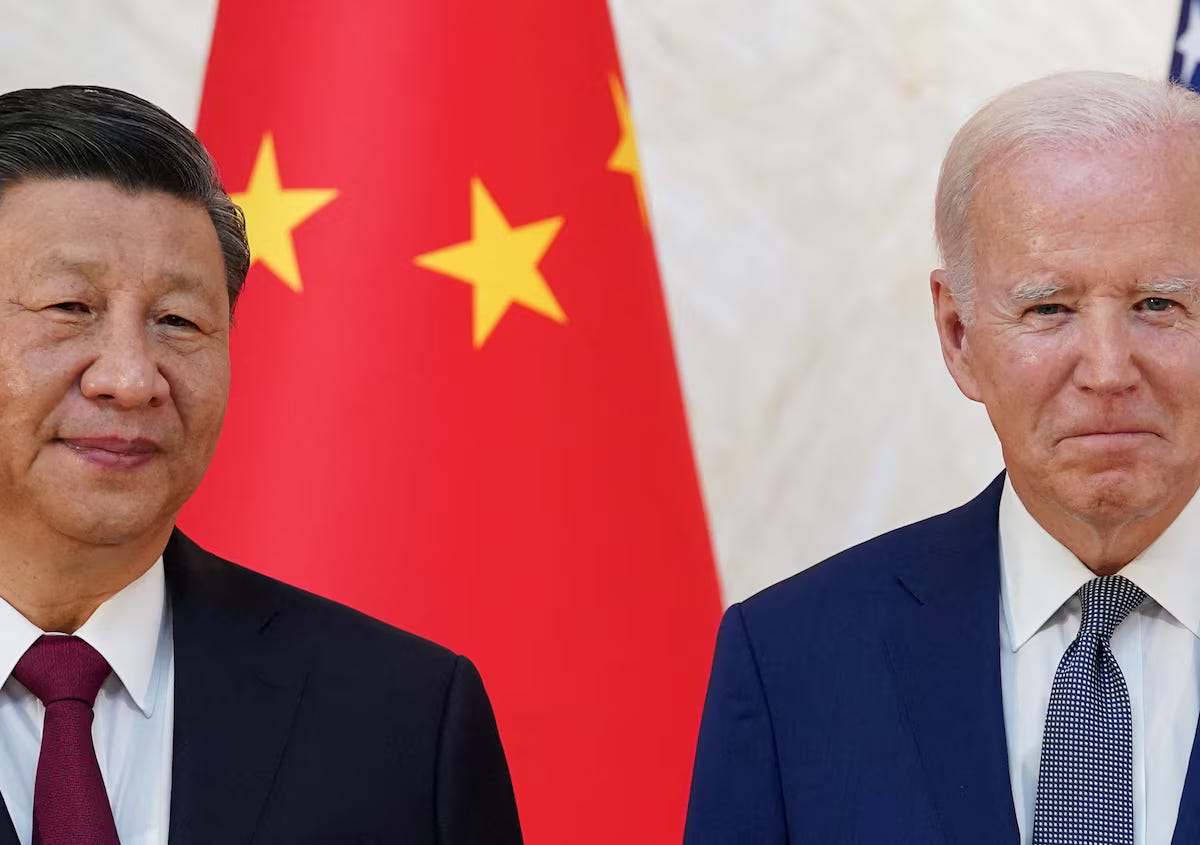China's Conquest of Clean Energy Threatens Biden's Industrial Ambitions
The Biden administration faces a critical challenge as China's subsidized clean energy exports undermine efforts to revitalize U.S. manufacturing and secure America's industrial future.
The Story:
The Biden administration's ambitious industrial agenda, aimed at revitalizing American manufacturing and transitioning to cleaner energy sources, is facing a significant challenge from a surge of cheap exports from China.
President Biden is weighing new measures to protect emerging industries like electric vehicle production and solar panel manufacturing from Chinese competition, as these industries are central to his economic and climate change mitigation plans.
Biden is considering higher tariffs on Chinese steel, aluminum, and shipbuilding products, and has initiated investigations into Chinese technologies, such as software and components for electric vehicles and other internet-connected automobiles.
This comes as the administration is increasingly viewing Chinese imports as a direct threat to the president's agenda, with concerns that heavily subsidized Chinese exports could wipe out the investment and jobs that are crucial to Biden's vision. The administration's approach differs from China's, which has poured significant government subsidies into factories, often relying on low-cost labor, to help offset a real estate crisis and sluggish domestic consumption.
These factories are now exporting goods at prices that are often far below those of their competitors, helping to power China's economy. In some cases, other nations allege that Chinese firms are selling products abroad at a loss.
Meanwhile, the Biden administration is funneling federal money into targeted industries in the United States, with the aim of seeding innovation and creating well-paying jobs. However, some of this assistance comes with strings attached, such as requirements for companies to pay higher wages or provide childcare for workers, which has raised concerns that these efforts to change corporate behavior could undermine the administration's core industrial policy objectives.
The competing goals of promoting renewable energy and protecting American industries from Chinese competition represent a challenge for the Biden administration. While the administration is doing everything it can to increase the consumption of renewable energy products, it is also warning China against the sale of cheap renewable energy products, which would boost American consumption of the very products it is trying to encourage.
Doubts remain about whether President Biden fully grasps the gravity of the China challenge and has a clear strategy to ensure American and allied success. A recent survey found that for the first time, a slim majority of Southeast Asian leaders would choose China over the U.S. as their preferred regional partner, suggesting growing doubts in Asia about American leadership compared to China's rising influence.
The issue is not limited to the United States, as European leaders have also raised similar concerns about Chinese goods being sold at a loss in Europe. The European Union is carrying out its own investigations into Chinese imports of electric vehicles, which could ultimately result in tariffs on those products. The union has also implemented a carbon border tax that is expected to hit China, which has looser environmental regulations.
The View:
The Biden administration's struggle to balance its ambitious industrial agenda with the threat posed by cheap Chinese exports highlights the complex and multi-faceted nature of the challenge it faces. The president's determination to revitalize American manufacturing and transition to cleaner energy sources is commendable, but his administration must navigate a delicate balance between promoting domestic industries and engaging with global trade.
The administration's decision to pursue higher tariffs and initiate investigations into Chinese technologies is a bold and assertive move, demonstrating a willingness to confront the challenge head-on. However, the potential for these actions to escalate tensions with China and provoke retaliatory measures is a serious concern that the administration must grapple with.
Furthermore, the administration's efforts to condition federal funding on corporate behavior, such as paying higher wages and providing childcare, while laudable in their intent, risk undermining the core objectives of the industrial policy agenda. The administration must strike a careful balance between promoting social welfare and ensuring the competitiveness of American industries.
The fact that the European Union and other nations are also raising concerns about Chinese exports highlights the global nature of the challenge. A coordinated, multilateral response may be necessary to effectively address the issue, but the administration must be prepared to navigate the complexities of international diplomacy and trade negotiations.
Ultimately, the success of the Biden administration's industrial agenda will depend on its ability to confront the threat posed by Chinese exports while maintaining a nuanced and strategic approach. The stakes are high, and the administration must be willing to make difficult decisions and confront the political and economic realities of a rapidly changing global landscape.
TLDR:
The Biden administration's ambitious plans to reinvigorate American manufacturing and transition to clean energy are colliding with a flood of cheap exports from China.
China's massive government subsidies and support for its factories are allowing them to produce and export goods at prices that undercut American competitors, threatening to wipe out the investment and jobs central to Biden's economic agenda.
The administration is considering new measures, including higher tariffs and trade investigations, to protect emerging industries like electric vehicles and solar panel manufacturing from Chinese competition.
This clash represents a fundamental tension between the Biden administration's efforts to promote clean energy and its commitment to protecting American jobs and industries.
The European Union and other U.S. allies are also voicing concerns about China's unfair trade practices and are pursuing their own measures to counter the influx of Chinese exports.
The success of China's manufacturing exports could serve as a catalyst for a more coordinated and assertive response from the U.S. and its allies on trade.
However, some question whether the Biden administration has a comprehensive strategy and the necessary resources to effectively counter the Chinese threat and ensure the success of its industrial policy.
Insights From:
Does Biden Take China’s Threat Seriously? - The Wall Street Journal
Chinese Exports Are Threatening Biden’s Industrial Agenda - The New York Times





